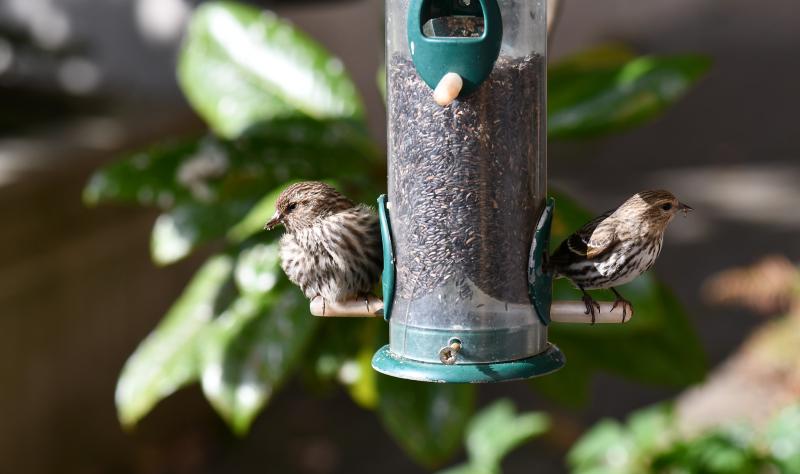Investigation links Salmonella outbreak to wild songbirds - University of Minnesota Twin Cities

An outbreak of salmonellosis that sickened people in 12 states during winter 2020-21 has been linked to wild songbirds, researchers reported today in Emerging Infectious Diseases.
The outbreak of illness caused by Salmonella enterica serovar Typhimurium was first identified by public health officials in eight people in Oregon and Washington state in February 2021. Whole-genome sequencing determined that the isolates collected from the patients were genetically related to one another as well as to an isolate from a pine siskin (a type of finch) collected in Oregon in December 2020.
To identify additional cases and find the potential source of the outbreak, investigators analyzed the Centers for Disease Control and Prevention's PulseNet database (which tracks foodborne and waterborne illness), interviewed case-patients about potential exposures, and conducted postmortem examinations of dead songbirds collected in Oregon, Washington, and California.
Sixteen cases tied to wild-bird exposure
A total of 30 case patients in 12 states were identified (20 in Oregon, Washington, and California), with illness-onset dates ranging from December 26, 2020, to May 19, 2021. Patient ages ranged from younger than 1 to 89 years. Fourteen patients were hospitalized.
Of the 22 patients interviewed, 14 reported having a bird feeder on their property, 7 had contact with living or dead songbirds in the week before illness onset, 18 had pet dogs, and 7 had pet cats. Overall, 16 cases could be linked to wild-bird exposure, either by direct contact with birds, contact with bird feeders, or indirect contact with companion animals that may have come into contact with birds.
This outbreak of Salmonella Typhimurium demonstrates the ongoing need to raise public awareness of the potential to acquire Salmonella from wild animals such as songbirds.
Meanwhile, wildlife experts from some of the involved states noted an increase in reports of sick and dead songbirds in and around birdfeeders at around the same time as the human salmonellosis outbreak. Sequencing of 23 Salmonella isolates from dead birds in Oregon (15), Washington (4), and California (4) found they were genetically related to each other and the outbreak strain, as was an isolate from a dog in Oregon. The dog's owners reported that dead birds had been observed on their property and on neighboring properties.
Investigators also identified 29 birds in 8 states that died from January 22 to March 23, 2021, and postmortem exams revealed symptoms consistent with songbird salmonellosis. Although the outbreak strain was not confirmed in birds in all states with human cases, the suspicion is that the presence of birdfeeders likely attracted migratory songbirds like pine siskins, providing a source of exposure.
Risk of spillover
The study authors note that while Salmonella has been isolated from healthy and ill wilds birds in the United States for decades, and has contributed to wild songbird deaths, the prevalence has been difficult to estimate. They say the findings from this outbreak exemplify the potential for Salmonella spillover from wild birds to humans, either through handling of dead birds or touching surfaces contaminated with bird feces, like birdfeeders.
"This outbreak of Salmonella Typhimurium demonstrates the ongoing need to raise public awareness of the potential to acquire Salmonella from wild animals such as songbirds," they wrote. "Persons should avoid direct contact with wild birds, particularly those that are visibly sick or dead, and should wash their hands after any contact with birds, feeders, or baths, even if wearing gloves."
They also advise pet owners to prevent their pets from contacting wild birds, birdfeeders, spilled seed, and birdbaths to reduce their potential from becoming infected with Salmonella or transmitting it to their owners.
"Given the repeated detection of this outbreak strain over time and the periodic deaths associated with Salmonella in some wild birds, it is possible for further illness to arise in persons or their pets in the United States," they wrote.
Comments
Post a Comment